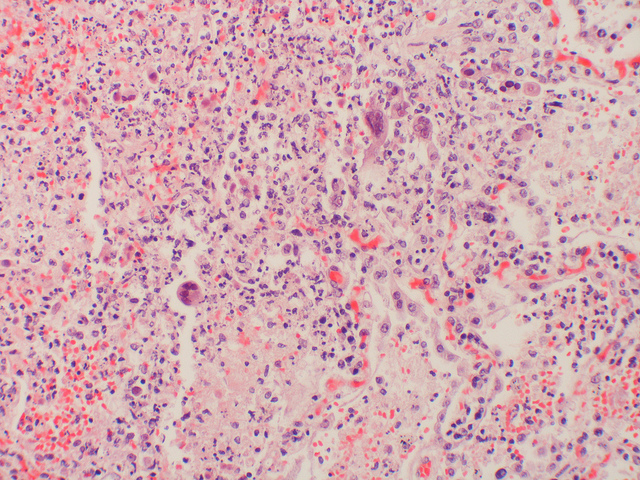Recent studies on Alzheimer’s disease reveal astounding results. Scientists were able to uncover evidence that links common viral infections to the chronic neurodegenerative disease. With the discovery, they concluded that medicines currently being used to treat herpes may actually be very helpful in preventing memory loss and cognitive abilities.
In the study that was published on Neuron Journal, experts from the Arizona State University in Phoenix and the Icahn School of Medicine at Mount Sinai in New York City found that those with Alzheimer's have more human herpesviruses (HHV-6A and HHV-7) in their brains compared to those who do not have the disease.
The postmortem analysis gave strong evidence of links to viruses’ involvement in what the doctors call the "regulatory genetic networks," which they think can lead to Alzheimer's. The study proved to be significant as the doctors now have more knowledge about the disease and they were able to find possible treatment as well.
Now, after the research paper was published, a scientific commentary pointed out that it is not the only research that suggests the links between Alzheimer’s and herpes. As a matter of fact, there are three more studies that discussed the same topic.
As reported on the University of Manchester website, a professor of neuroscience and experimental psychology at the university, Ruth Itzhaki, and University of Edinburgh professor in the Division of Infection and Pathway Medicine, Richard Lathe, are the authors of the commentary.
The two professors published their notes in the Journal of Alzheimer’s Disease and they mentioned that the previous research published by a Taiwanese group in the journal Neurotherapeutics confirmed their earlier discovery about the link between virus and Alzheimer’s. In the study conducted by the Taiwanese group, elderly people who had a severe herpes infection were treated with antiviral medicine, and their risk of having dementia dramatically shrunk tenfold.
“It was as long ago as 1991 when we discovered that, in many elderly people infected with HSV1, the virus is present also in the brain, and then in 1997 that it confers a strong risk of Alzheimer’s disease in the brain of people who have a specific genetic factor,” Itzhaki said.
She added, “We believe that these safe and easily available antivirals may have a strong part to play in combating the disease in these patients.” Finally, it should be noted that the people who were tested for the research have ages ranging between 50 and up.



 Weight-Loss Drug Ads Take Over the Super Bowl as Pharma Embraces Direct-to-Consumer Marketing
Weight-Loss Drug Ads Take Over the Super Bowl as Pharma Embraces Direct-to-Consumer Marketing  FDA Fast-Track Drug Reviews Delayed Over Safety and Efficacy Concerns
FDA Fast-Track Drug Reviews Delayed Over Safety and Efficacy Concerns  Novo Nordisk Warns of Profit Decline as Wegovy Faces U.S. Price Pressure and Rising Competition
Novo Nordisk Warns of Profit Decline as Wegovy Faces U.S. Price Pressure and Rising Competition  Sanofi to Acquire Dynavax in $2.2 Billion Deal to Strengthen Vaccines Portfolio
Sanofi to Acquire Dynavax in $2.2 Billion Deal to Strengthen Vaccines Portfolio  RFK Jr. Overhauls Federal Autism Panel, Sparking Medical Community Backlash
RFK Jr. Overhauls Federal Autism Panel, Sparking Medical Community Backlash  Sanofi to Acquire Dynavax in $2.2 Billion Deal to Strengthen Vaccine Portfolio
Sanofi to Acquire Dynavax in $2.2 Billion Deal to Strengthen Vaccine Portfolio  China to Add Eli Lilly’s Mounjaro to National Health Insurance in 2025
China to Add Eli Lilly’s Mounjaro to National Health Insurance in 2025  California Jury Awards $40 Million in Johnson & Johnson Talc Cancer Lawsuit
California Jury Awards $40 Million in Johnson & Johnson Talc Cancer Lawsuit  Merck Raises Growth Outlook, Targets $70 Billion Revenue From New Drugs by Mid-2030s
Merck Raises Growth Outlook, Targets $70 Billion Revenue From New Drugs by Mid-2030s  Viking Therapeutics Sees Growing Strategic Interest in $150 Billion Weight-Loss Drug Market
Viking Therapeutics Sees Growing Strategic Interest in $150 Billion Weight-Loss Drug Market 































